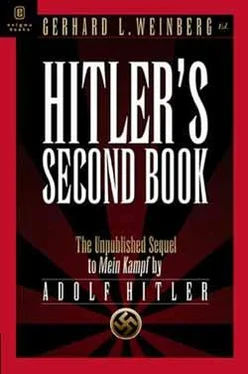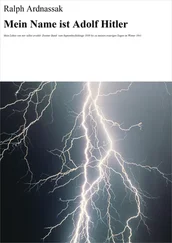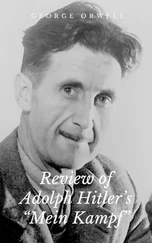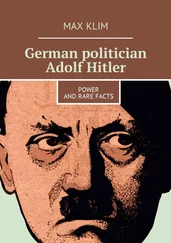Indeed, right now I encounter the most stubborn resistance in the purely critical way of viewing things that many people have. They recognise this and this and this as good and as correct, but despite this they cannot join us because this and this and this is dubious. They know that Germany and our Folk will perish, but they cannot join the rescue action because here, too, they detect this or that which is at least a blemish that mars its beauty.
In short, they see the decline and cannot muster up the strength of determination to battle against it, because in the resistance and in this deed itself they already again begin to smell out some possible objection or other.
This deplorable mentality owes its existence to [springs from] a still further evil. Today there are not a few men, especially the so called educated ones, who, when they finally make up their minds to fall in line with a certain action or even to promote it, first carefully weigh the percentage of the probability of its success, in order then to calculate the extent of their active involvement likewise on the basis of this percentage. Thus this means: because, for example, any decision on foreign policy or domestic policy is not completely satisfying and hence does not seem certain to succeed, one should also not espouse it unreservedly with the full dedication of all his powers. These unhappy souls have no understanding at all of the fact that, on the contrary, a decision which I deem to be necessary, whose success however does not seem completely assured, or whose success will offer only a partial satisfaction, must be fought for with an increased energy so that what it lacks in the possibility of success in percentage points, must be made up for in the energy of its execution. Thus only one question is to be examined: whether a situation demands a definite decision or not. If such a decision is established and recognised as incontestably necessary, then its execution must be carried out with the most brutal ruthlessness and the highest employment of strength even if the ultimate result will be a thousand times unsatisfactory or in need of improvement or possibly will meet with only a small percentage of probability of success.
If a man appears to have cancer and is unconditionally doomed to die, it would be senseless to refuse an operation, because the percentage of the possibility of success is slight, and because the patient, even should it be successful, will not be a hundred percent healthy. It would be still more senseless were the surgeon to perform the operation itself only with limited or partial energy in consequence of these limited possibilities. But it is this senselessness that these men expect uninterruptedly in domestic and foreign policy matters. Because the success of a political operation is not fully assured or will not be completely satisfactory in result, not only do they renounce its execution, but expect, should it take place nevertheless, that at least it will ensue only with restrained power, without a complete dedication, and always in silent hope that perhaps they can keep a little loophole open through which to make their retreat. This is the soldier who is attacked by a tank on an open battlefield and who, in view [in consequence] of the uncertainty of the success of his resistance, conducts it at the outset with only half his strength. His little loophole is flight, and certain death is his end.
No, the German Folk is today attacked by a pack of booty hungry enemies from within and without. The continuation of this state of affairs is our death. We must seize every possibility of breaking it, even if its result may a thousand times likewise have its weaknesses or objectionable sides as such. And every such possibility must therefore be fought out with the utmost energy.
The success of the battle of Leuthen was uncertain, but it was necessary to fight it. Frederick The Great did not win because he went toward the enemy with only half his strength, but because he compensated for the uncertainty of success by the abundance of his genius, the boldness and determination of his troop dispositions, and the derring do of his regiments in battle.
I’m afraid, indeed, that I will never be understood by my bourgeois critics, at least as long as success does not prove to them the soundness of our action. Here the man of the Folk has a better counsellor. He sets the assurance of his instinct and the faith of his heart in place of the sophistry of our intellectuals.
If I deal with foreign policy in this work, however, I do so not as a critic, but as the Leader Of The National Socialist Movement, which I know will some day make history. If I am, therefore, nevertheless forced to consider the past and the present critically, it is only for the purpose of establishing the only positive way, and to make it appear understandable. Just as the National Socialist Movement not only criticises domestic policy, but possesses its own philosophically grounded Program, likewise in the sphere of foreign policy it must not only recognise what others have done wrongly, but deduce its own action on the basis of this knowledge.
Thus I know well that even our highest success will not create a hundred percent happiness, for in view of human imperfection and the general circumstances conditioned by it, ultimate perfection always lies only in programmatic theory. I also know, further, that no success can be achieved without sacrifice, just as no battle can be fought without losses. But the awareness of the incompleteness of a success will never be able to keep me from preferring such an incomplete success to the perceived complete downfall. I will then strain every nerve to try to offset what is lacking in the probability of success or the extent of success through greater determination, and to communicate this spirit to the Movement led by me. Today we are fighting against an enemy front which we must and will break through. We calculate our own sacrifices, weigh the extent of the possible success, and will stride forward to the attack, regardless of whether it will come to a halt ten or a thousand kilometres behind the present lines. For wherever our success ends, it will always be only the point of departure for a new struggle.
Chapter 5
NATIONAL SOCIALIST FOREIGN POLICY
I am a German nationalist. This means that I proclaim my nationality. My whole thought and action belongs to it. I am a socialist. I see no class and no social estate before me, but that community of the Folk, made up of people who are linked by blood, united by a language, and subject to a same general fate. I love this Folk and hate only its majority of the moment, because I view the latter to be just as little representative of the greatness of my Folk as it is of its happiness.
The National Socialist Movement which I lead today views its goal as the liberation of our Folk within and without. It aims to give our Folk domestically those forms of life which seem to be suitable to its nature and to be a benefit to it as the expression of this nature. It aims thereby to preserve the character of this Folk and to further cultivate it through the systematic fostering of its best men and best virtues. It fights for the external freedom of this Folk, because only under freedom can this life find that form which is serviceable to its Folk. It fights for the daily bread of this Folk because it champions [in hunger] this Folk’s right to life. It fights for the required space, because it represents this Folk’s right to life.
By the concept domestic policy the National Socialist Movement therefore understands the promotion, strengthening and consolidation of the existence of our Folk through the introduction of forms and laws of life which correspond to the nature of our Folk, and which can bring its fundamental powers to full effectiveness.
Читать дальше












